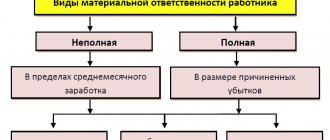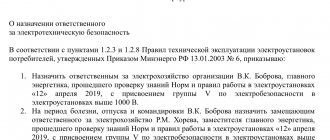Differentiation of losses, damage, harm
The indiscriminate use of the listed terms in everyday conversations and official correspondence has led to confusion in their understanding. Despite their similarity, these expressions carry different meanings.
The law reveals the legal concept of actual damage and loss. Losses are material investments that a person is forced to make in order to restore his rights or property.
The legislation added another type of loss - lost profits.
The first concept refers to the amount of expenses that a person or organization incurs to restore their rights or property. For example, a taxi owner is forced to repair the car instead of continuing to use it to generate income.
Lost profits include the income that the victim would have received if the damage had not occurred. In the case of a taxi owner, this is the money that he could have received if the car had not been damaged.
Harm is a broader category that includes damage of a material and intangible nature. For example, a violation of a person’s personal rights and inviolability is difficult to assess in material terms; the same applies to causing serious harm to health.
If the obligation is violated
The debtor is obliged to compensate the creditor for losses caused by non-fulfillment or improper fulfillment of the obligation (Article 393 of the Civil Code of the Russian Federation). In this case, as a general rule, the creditor can use other methods of protecting violated rights provided for by law or contract.
Compensation for losses in full means that, as a result of their compensation, the creditor must be put in the position in which he would have been if the obligation had been properly performed.
Here, when determining losses, the prices that existed in the place where the obligation was to be fulfilled on the day the debtor voluntarily satisfied the creditor’s demands are taken as a basis. And if the demand was not satisfied voluntarily - on the day the claim was filed (although the court will take the prices existing on the day the decision was made).
When determining lost profits, the following are taken into account:
- measures taken by the creditor to obtain it;
- preparations made for this purpose.
The general principle is that the amount of damages to be compensated must be established with a reasonable degree of certainty.
Separate article 393.1 of the Civil Code of the Russian Federation regulates compensation for losses upon termination of a contract. Thus, if the debtor’s failure to perform or improper performance of the contract resulted in its early termination and the creditor entered into a similar contract in return, the creditor has the right to demand compensation from the debtor for losses - in the form of the difference between the price in the terminated contract and the price of comparable goods (work or services) under the terms of the contract , concluded to replace the terminated one.
Legislative regulation
Art. 15 of the Civil Code of the Russian Federation gives a basic understanding of what damage is. The role of guilt is described in other articles of the Code, but much of it is of a general nature.
Many regulatory documents have been adopted affecting compensation for harm in various areas of life. For example, relevant provisions are contained in documents regulating the energy sector, norms on social insurance, and they are also found in other areas of law.
As a rule, these provisions are already specific; with their help it is easy to make the necessary calculations.
Where it is difficult to write a specific rule or there is confusion in the application of existing legislation, judicial practice helps. For example, in the case of moral damages.
Various methods have been developed aimed at assessing harm or damage. They are used in trials where the issue of real damage is raised.
Example
The partnership filed a lawsuit demanding that the company be obliged to transfer 2 apartments in kind, in accordance with the participation agreement. During the consideration of the application by the defendant, the claims were accepted. However, the subject referred to the impossibility of fulfilling the accepted obligation, since the building in which the apartments were located was inhabited. In accordance with the situation, the plaintiff changed the subject of the application and demanded compensation for losses in the form of the cost of living space. The court of first instance satisfied the claims. The defendant was charged an amount equal to the estimated cost of the apartments on the date of signing the contract.
The plaintiff, challenging this decision, pointed out that compensation taking into account inflation does not allow the purchase of two equal living spaces. Accordingly, an obstacle arose to restoring his rights. By order of the appellate court, changes were made to the decision. In particular, an amount sufficient to purchase apartments of similar quality to those that were to be transferred to him under the contract was recovered in favor of the applicant. The court was guided primarily by Art. 15 Civil Code of the Russian Federation. When establishing the amount of damage, additional rules of 393 norms were applied (clause 3).
Emergence of the right to claim
The obligation to compensate for actual damage arises from the agreement of the parties to the contract or from other actions in the absence of a contract.
From contractual relations, we can take a construction contract as an example. The customer may be faced with the need to correct shortcomings made by the contractor. This is a valid basis for demanding payment of damages caused.
The supplier failed to fulfill its obligations, causing the customer to lose income by not producing the volume of products it required. In both cases, the agreements provide rules for calculating the amount of damage.
If harm is caused as a result of an accident, the court considers the case, first of all, on the basis of the law, and not the clauses of the agreement between the parties.
The contract, of course, must comply with the law, but within certain limits, serious adjustments to the liability provisions are possible.
Right to sue
Whether to demand compensation for losses and actual damage depends on the wishes of the injured party. The law gives such a right, and whether to exercise it or not depends on the intentions of the participants in the incident.
The plaintiff must prove that the harm was caused to him, or he has the right to demand compensation on behalf of another person, or the dispute otherwise affects his interests.
In addition, citizens-consumers and entrepreneurs and commercial organizations have the right to sue by first filing a claim. The lack of evidence of her treatment will complicate the process of opening a case in court. So these two requirements should be taken seriously.
Which court should I go to?
Disputes between entrepreneurs are resolved by arbitration courts; the cost of the claim does not matter. If there is a civil dispute, where one of the parties is a citizen who does not have a business interest in the case, the case is heard in a district or magistrate court.
Justices of the peace deal with minor disputes worth up to 50 thousand rubles, district courts deal with more serious disputes.
A case initiated by a magistrate court may be transferred to a district court if the judge finds that the amount of losses and actual damage exceeds the 50 thousand ruble limit. The basis is the conclusion of the appraiser.
Art. 15 Civil Code of the Russian Federation with comments
In the norm under consideration, the concept of property losses is associated with an offense and is regarded as one of the categories of legal liability. Meanwhile, it should be taken into account that another interpretation of losses is quite common. They often mean negative consequences for a person’s property status. They are expressed in the need to make certain expenses or to maintain the material sphere unchanged, while it must expand. At the same time, the imposition of an obligation to compensate for losses in such cases cannot be considered as a form of liability. In part 1 of Art. 15 of the Civil Code of the Russian Federation establishes the possibility of demanding full compensation. As a general rule, recovery of losses in a larger volume will lead to unjust enrichment. Meanwhile, there are many exceptions to it. Moreover, they are installed both in one direction and in the other. For example, compensation for penalties in excess of losses is allowed.
Features of preparation for trials
Litigation involving damages differs in both quantity and specificity. For example, there is a significant difference between disputes about the recovery of damage caused by flooding of an apartment and an accident. Various acts of legislation, practice of application.
Recovery of damage caused by the actions of law enforcement agencies has its own specifics. The only thing they have in common is a reference to Art. 15 Civil Code of the Russian Federation.
For example, if an apartment is flooded, the owner of the premises bears responsibility, no matter who was there at that time, even if at that time it was officially rented out. He then has the right to present all claims to the real culprit in a separate lawsuit.
The basic document is the flood report approved by the management organization. It also constitutes a defective act. They contain a description of the damage and its assessment.
In case of an accident, it is important to wait for the police officer to draw up materials and then send them to the court. At the same time, issues with the insurance company are being resolved.
Its specialist draws up the papers, the car is sent for examination, which provides an assessment of the actual damage. It must be said that it always causes criticism and provokes legal disputes with insurers.
Illegal actions of government authorities are confirmed by court decisions recognizing the fact of illegal actions and canceling them.
The right to rehabilitation due to the illegality of criminal prosecution is confirmed by a court verdict.
If the violation provides for administrative punishment, then an administrative protocol or a resolution of the court or commission that makes the final decision will have to be presented to the court.
Their absence leads to the loss of the case due to the inability to prove the fact of the event.
Specifics of consideration of cases
When considering cases in which the conflict arises from tax or other administrative and financial relations, it is necessary to take into account that the provisions of civil law are applicable to them only if the corresponding possibility is established by the rules. Judicial practice is based on the fact that organizations and citizens, in accordance with the rules of the commented article. 15, has the right to make claims for compensation for damages arising in connection with the unjustified imposition of economic sanctions by the Federal Tax Service, customs structures, bodies regulating pricing, and other government institutions.
Damage assessment
As stated above, various methods are used to assess actual damage. For example, the methodology for calculating damage caused by failure to fulfill or dishonest fulfillment of obligations is still formally in effect.
The difference in methods makes it difficult to decide how much to estimate the damage. For example, the estimate for car repairs differs by several tens of thousands of rubles between different experts.
Each method of calculating actual damage has its advantages and disadvantages. They are based on different criteria. For example, the prices of components for a car can be taken from several sources.
The average repair estimate for a residential property is calculated from the average market price. To obtain this value, different prices may be taken into account.
The amount is calculated in several stages:
- drawing up estimates for work or property repairs based on the market value of work or items in the region;
- degree of wear and tear (applies to both cars and buildings);
- the results of calculating the amounts and degree of wear are summarized.
Valuation and litigation
The ordered report of the appraiser before the start of the trial has the status of simple written evidence. There is a much more critical attitude towards it than towards an expert’s conclusion. The difference is in the responsibility for errors and the procedure for assigning and conducting.
The judge, as a rule, appoints an examination, poses questions to the expert and sends it to the selected organization or to the selected expert. If for some reason the court is not satisfied with the conclusion, a new examination is ordered from one or another expert. Judicial practice regarding real damage knows such cases.
The persuasiveness of an expert's conclusion is an entirely subjective matter. First of all, it is necessary to convince the court to appoint an expert assessment; it is even more difficult to obtain the appointment of a new one. If the court agrees to this, it will also be difficult to convince it of the correctness of the conclusions reflected in the later examination.
As for the amounts that victims receive, each region has developed its own “taxes” that citizens and organizations receive for violation of their rights. Especially when it comes to moral damage.
Court decisions regarding compensation for flooding of housing differ significantly.
Only the amount for illegal criminal prosecution can be called uniform, because one technique is used throughout the country.
Compensation for damage as a measure of protection
Collection can be carried out in order to ensure the protection of any (exclusive, property, obligation). In this case, the presence/absence of instructions on this matter in special norms does not matter. Compensation for damage acts as a universal method of protecting the interests of the victim. This is expressed in the fact that losses can be compensated simultaneously with the imposition of penalties, interest for the use of other people's money, and so on. In some cases, compensation for damage is carried out together with the application of other sanctions established by law. This provision refutes the widely held belief that the use of two or more punishments for one violation is inadmissible.
Filing a claim
The statement of claim is drawn up according to a single scheme:
- court name or precinct number of the magistrate;
- information about the plaintiff (full name of the person or name of the organization), address;
- information about the defendant (full name of the person or name of the organization), address;
- a statement of the circumstances of the case, the sequence of events;
- links to evidence, legislation;
- requirements of the claim (to recover damages in the amount and indicate the amount);
- claims for actual damage and lost profits are prescribed separately;
- a list of attached copies of documents;
- signature and date of submission of documents to the court or sending them by mail;
- A receipt for payment of the state fee is attached.
Commentary on Article 15 of the Civil Code of the Russian Federation
1. The commented article is included in the chapter of the Civil Code on the grounds for the emergence of civil rights, their implementation and methods of protection. This arrangement of the general rule on damages (in contrast to the Civil Code of 1964, where it was in the section “Law of Obligations”) is due to the fact that compensation for damages is typical not only for obligations, but also for other institutions of civil law.
The article contains general provisions on compensation for losses and defines their types, regardless of the nature of the offense. On the basis of this norm, part one of the Civil Code includes a number of norms regulating relations arising when compensating for losses (see Articles 16, 74, 105, 393, 394, 400 and commentary thereto). A number of rules on losses are contained in part two of the Civil Code (Articles 520, 524, etc.).
2. The opportunity to use compensation for damages as a means of protecting violated rights arises for citizens and legal entities from the very fact of failure to fulfill an obligation, violation of civil rights, i.e. regardless of whether a particular norm of the Civil Code contains a mention of such a right. Thus, compensation for damages is given the character of a universal method of protecting civil rights. Damages may be combined with other remedies.
3. In paragraph 2 of the commented article, two types of losses are named: actual damage and lost profits. The composition of actual damage includes expenses that a person has already actually incurred by the time a claim for damages is filed or that will still be incurred by him to restore the violated right, i.e. future expenses. Real damage also includes losses caused by loss or damage to property, because in this case expenses are also incurred.
Lost profits represent income (benefit) that a person would have received under normal conditions of civil transactions if his rights had not been violated (for example, the contract would have been properly executed).
Normal turnover conditions should be understood as typical conditions for the functioning of the market, which are not affected by unforeseen circumstances or circumstances interpreted as force majeure.
4. The rule on the possibility of collecting future expenses is new compared to the Civil Code of 1964. The main problem is to justify the need and amount of future expenses.
The Supreme Arbitration Court of the Russian Federation and the Supreme Arbitration Court of the Russian Federation, determining the direction of resolving disputes related to the recovery of losses caused to citizens and legal entities, proposed that courts require confirmation of the need for future expenses and their expected amount with a reasonable calculation and evidence, which can be an estimate (calculation) of the costs of elimination of deficiencies in goods, works, services; an agreement defining the amount of liability for violation of obligations, etc. (Clause 10 of the Resolution of the Plenums of the Armed Forces of the Russian Federation and the Supreme Arbitration Court of the Russian Federation No. 6/8).
It can be assumed that it is advisable to use the rules for calculating the amount of future losses (including abstract losses) established in Art. 524 of the Civil Code for calculating losses upon termination of a supply contract due to violation of obligations by the supplier or buyer.
When determining the amount of future expenses, it is necessary to take into account that not just any, but necessary (reasonable) expenses that will be incurred by the injured person within a normal (reasonable) period after the violation of his rights are subject to compensation, and a reasonable price will be applied to him.
In any case, when making a claim for compensation of both specific expenses already incurred and future expenses, the causal connection between the violation (non-fulfillment) of the obligation and the losses, as well as their amount, must be proven.
5. Compliance with these conditions is also necessary when making claims for compensation for lost profits (lost income). The injured person must prove the amount of income that he did not receive due to the violation of the obligation, as well as the causal connection between the failure to fulfill the obligation and the lost income.
When calculating the amount of lost income, it is of paramount importance to determine the reliability (reality) of the income that the injured person expected to receive under normal conditions of civil circulation.
The Resolution of the Plenums of the Supreme Court of the Russian Federation and the Supreme Arbitration Court of the Russian Federation No. 6/8 emphasizes that the amount of lost income (lost profits) should be determined taking into account the reasonable costs that the creditor should have incurred if the obligation had been fulfilled. In particular, when determining the amount of lost income due to short supply of raw materials and components, the selling price of finished goods minus the costs associated with their production is taken into account (clause 11).
Clause 2 of the commented article includes a rule for determining the amount of lost profits in the case when, as a result of a violation, the violator received income. According to this rule, a person whose rights have been violated has the right to demand compensation for lost profits in an amount no less than the income received by the violator.
6. Paragraph 1 of the commented article enshrines one of the basic principles of civil law - full compensation for losses. However, this rule allows (as an exception to the general rule) compensation for losses in a smaller amount, if this is provided for by law or contract. Grounds for limiting the amount of liability for obligations, incl. and restrictions on the right to full compensation for losses are provided for in Art. 400 GK. At the same time, Art. 400 of the Civil Code invalidates an agreement to limit the amount of liability under a contract in which the creditor is a citizen acting as a consumer, if the amount of liability is determined by law (see Art. 400 and commentary thereto).
Part two of the Civil Code provides for a limitation on the principle of full compensation for losses for certain obligations and types of contracts. Moreover, the limitation manifests itself in different forms. Under an energy supply agreement (and other supply agreements through the connected network), only real damage is subject to compensation (Articles 547, 548 of the Civil Code). Under a contract for research and development work (R&D), lost profits are compensated only in cases provided for in the contract. Losses caused to the customer in connection with the performance of R&D with defects are compensated within the cost of this work, unless the contract stipulates that they are subject to compensation within the total cost of work under the contract (Article 777 of the Civil Code).
Limitation of liability and thereby the principle of full compensation for losses is also the establishment of liability of an entrepreneur only for culpable failure to fulfill obligations, in particular under a contract agreement (Article 538 of the Civil Code, etc.).
7. In judicial practice, the question often arises whether the presented demand can be interpreted as recovery of damages.
Thus, in the decision in the case dated 04.03.97 N 4520/96, the Presidium of the Supreme Arbitration Court of the Russian Federation indicated that the amount of the principal debt to the counterparty under the contract is not a loss for the plaintiff, since it does not relate to the expenses incurred by him in connection with the illegal actions of the tax authority (Bulletin of the Supreme Arbitration Court RF, 1997, No. 6, p. 68).
In another case, the Supreme Arbitration Court of the Russian Federation recognized that the amount of interest on a bank loan and penalties on tax payments paid as a result of violation of obligations by the counterparty are essentially losses (Bulletin of the Supreme Arbitration Court of the Russian Federation, 1998, No. 1, p. 27).
The Presidium of the Supreme Arbitration Court of the Russian Federation recognized the demand for the recovery of inflationary losses, the compensation of which was provided for in the contract, as a demand for the recovery of losses, and not a penalty (Bulletin of the Supreme Arbitration Court of the Russian Federation, 1998, No. 8, p. 43).
The question of the nature of the claims arose when considering the company's claim for compensation for losses in the form of legal expenses incurred in connection with payment for legal services provided by a lawyer in the implementation of legal defense in a claim for violation of customs rules.
The Supreme Arbitration Court of the Russian Federation recognized that the costs recovered by the company belong to the category of legal costs subject to compensation in accordance with Art. 110 of the APC, and cannot be brought for recovery by filing an independent civil claim for damages (Bulletin of the Supreme Arbitration Court of the Russian Federation, 2004, No. 5, p. 50).
Duty amount
The amount of actual damage and lost income is the amount from which the duty is calculated. It is different for citizens and entrepreneurs. The calculation formula is set out in the section of the Tax Code devoted to payment of state fees when filing a claim in court.
Consumers, citizens who have lost their health or have lost their breadwinner, as well as those against whom criminal cases have been illegally filed, are exempt from the duty.
The appeal is paid by half of the amount that was paid when filing the claim in the first instance or would have been paid if the plaintiff had previously taken advantage of the benefit.
Cassation costs a little more - half the amount plus a percentage. The fee is calculated similarly when filing a supervisory complaint.
Before accepting the case for proceedings, the judge may adjust the amount of the fee and oblige an additional payment in order for the case to be accepted for proceedings. If the judge has issued a ruling on the commencement of proceedings, he does not have the right to apply the consequences of non-payment or incomplete payment of the fee. Statements from the other party in this regard after the opening of the case are also not accepted.
Losses and their compensation under civil law
Traditionally, forms of civil liability include:
- compensation for losses;
- payment of a penalty;
- loss of deposit;
- interest for the unlawful use of other people's funds (they have begun to be considered recently).
Losses in civil law are negative property consequences arising from violation of the subjective civil rights of subjects of civil law; in addition, this is a necessary element of the offense if the result of unlawful behavior was their infliction on the victim.
Thus, in civil law damages, as a rule, are
- as an objective condition of responsibility, and
- as a measure of responsibility,
which makes it possible to ensure their full compensation and thereby restore the property status of the victim to the state in which it was before the offense.
Art. 15 of the Civil Code of the Russian Federation gives a legal definition of losses:
- “ Losses are understood as expenses that a person whose right has been violated has made or will have to make to restore the violated right, loss or damage to his property (real damage), as well as lost income that this person would have received under normal conditions of civil circulation, if if his right had not been violated (lost profits).”
Thus, the Civil Code of the Russian Federation distinguishes between two types of losses:
- actual damage;
- lost profits.
Real damage
Real damage means
- expenses that a person whose right has been violated has made or will have to make to restore the violated right,
- loss or damage to his property.
The Resolution of the Plenum of the Supreme Court of the Russian Federation dated June 23, 2020 N 25 “On the application by courts of certain provisions of Section I of Part One of the Civil Code of the Russian Federation” states that actual damage includes not only the expenses actually incurred by the relevant person, but also the expenses that this person will have to carry out the restoration of the violated right (clause 2 of article 15 of the Civil Code).
If new materials were or will be used to eliminate damage to the plaintiff’s property, then, with the exception of cases established by law or contract, the costs of such elimination are included in the plaintiff’s actual damage in full, despite the fact that the value of the property has increased or may increase compared to its value before damage. The amount of compensation to be paid may be reduced if the defendant proves or it is clear from the circumstances of the case that there is another more reasonable and commonly used method of correcting such damage to such property. It should also be taken into account that the decrease in the value of the plaintiff’s property compared to its value before the defendant violated the obligation or caused harm is real damage even in the case where it can directly manifest itself only upon the alienation of this property in the future (for example, loss of the marketable value of a car, damaged as a result of a traffic accident).
Lost profit
In accordance with paragraph 2 of Art. 15 of the Civil Code, lost profits include lost income that this person would have received under normal conditions of civil transactions if his right had not been violated.
The Resolution of the Plenum of the Supreme Court of the Russian Federation dated June 23, 2020 N 25 “On the application by courts of certain provisions of Section I of Part One of the Civil Code of the Russian Federation” states that, within the meaning of Article 15 of the Civil Code of the Russian Federation, lost profit is lost income by which the property would have increased the mass of the person whose right was violated if there had been no violation. Since lost profits represent lost income, when resolving disputes related to its compensation, it should be taken into account that its calculation presented by the plaintiff is usually approximate and probabilistic in nature. This circumstance in itself cannot serve as a basis for refusing the claim. If the person who violated the right received income as a result, the person whose right was violated has the right to demand compensation, along with other losses, for lost profits in an amount not less than such income (clause 2 of Article 15 of the Civil Code of the Russian Federation).
When determining lost profits, the court takes into account not only potential income, but also the costs necessary to obtain it (if an estimate of costs is not provided, recovery of lost profits may be refused).
Compensation for damages under civil law
Compensation for damages is the main universal form of civil liability, which can be applied in all cases, unless otherwise provided by law or contract, as well as in combination with other independent forms of property liability.
The general rule contained in civil law establishes that losses must be compensated in full, i.e. Both actual damage and lost profits are subject to compensation. The burden of proving the fact of the occurrence of losses and their size rests with the victim. However, there are exceptions to this general rule; in particular, in cases expressly provided for by law or contract, limitation of property liability is allowed. For example, the carrier’s liability under a contract for the carriage of goods is limited: it is established either in the form of compensation only for actual damage (for failure to preserve the cargo), or in the form of an exceptional penalty, when losses are not compensated at all (for late delivery of goods).
Since prices may change in conditions of inflation, Art. 393 of the Civil Code of the Russian Federation establishes the rules for calculating losses:
- if the creditor's claim is satisfied voluntarily, then the prices existing on the day of fulfillment of the obligation in the place where the obligation must be fulfilled are taken into account;
- If the creditor's claim is satisfied in court, the court may determine the amount of damages based on prices on the day the claim was filed or on the day the decision was made.
This norm is dispositive in nature and can be changed by law, other regulations or agreement of the parties.
The Resolution of the Plenum of the Supreme Court of the Russian Federation dated June 23, 2020 N 25 “On the application by courts of certain provisions of Section I of Part One of the Civil Code of the Russian Federation” states that when considering cases for compensation for losses, it should be borne in mind that the provision of paragraph 4 of Article 393 of the Civil Code RF, according to which, when determining lost profits, the measures taken by the party to obtain it and the preparations made for this purpose are taken into account, does not mean that the damages subject to compensation may only include the costs of implementing such measures and preparations.
Scheme of evidence
In a trial, the parties are required to prove the facts to which they refer. Cases based on compensation for real damage under the Civil Code of the Russian Federation have their own specifics in this regard.
The plaintiff must prove:
- the fact of damage caused by the defendant;
- illegality or illegality of the defendant’s actions;
- justify the amount of damage and lost profits;
- connection between the defendant's actions and the damage.
The defendant, in general, has one obligation - to prove the absence of his guilt in what happened. If he was not guilty, he is released from liability.
If he refers to some other circumstances or facts that refute the plaintiff’s position, he is obliged to provide evidence to the court. An active position will increase the chances of winning the dispute or reducing the amount at which the plaintiff estimates the actual damage.
In practice, confusion often occurs, and judges automatically recognize the fact that the defendant caused harm. Although it has not yet been established, further consideration of the dispute does not make sense.
Now about the causal connection between the defendant’s actions and the damage. In case of an accident there are no problems. If we are talking about flooding an apartment, establishing communication, serious problems arise. In addition to the appraisal examination, a construction and technical examination is also appointed. It is aimed at identifying whose actions caused the incident.
In this category of cases, a unified approach to resolving the issue of causation has not yet been developed and confusion often arises.
Article 15 of the Civil Code of the Russian Federation. Compensation for damages (current version)
1. Compensation for damages, despite the difficulties of calculating them, is one of the most common methods of protecting civil rights. In paragraph 1 of the commented article, the principle of full compensation for losses caused is established as a general rule. However, this rule is dispositive, since the law or contract may provide for compensation for damages in a smaller amount. Thus, in the event of loss or shortage of cargo or luggage, the carrier compensates for damage in the amount of the cost of the lost or missing cargo or luggage (clause 2 of Article 796 of the Civil Code). Thus, only actual damage in the form of loss or damage to property is compensated.
Limited liability also occurs when establishing an exclusive penalty provided for by transport charters and codes, limiting the liability of communication enterprises to the obligation to compensate only for actual damage, and in a number of other cases.
Limitation on the amount of civil liability may also be provided for in a contract. However, freedom of agreement in this case is limited by paragraph 2 of Art. 400 of the Civil Code of the Russian Federation (see commentary to it), according to which an agreement to limit the amount of liability of the debtor under an adhesion agreement or other agreement in which the creditor is a citizen acting as a consumer is void if the amount of liability for a given type of obligation or for a given violation determined by law and if the agreement was concluded before the occurrence of circumstances entailing liability for non-fulfillment or improper fulfillment of the obligation.
Compensation for losses in full means in accordance with Art. 393 of the Civil Code (see commentary to it), that as a result of their compensation, the creditor should be put in the position in which he would have been if the obligation had been properly fulfilled. It should be taken into account that, unless otherwise provided by law, the use by the creditor of other methods of protecting violated rights provided for by law or contract (for example, payment of a penalty) does not deprive him of the right to demand from the debtor compensation for losses caused by non-fulfillment or improper fulfillment of the obligation.
It is not always possible to determine the exact amount of damages. Therefore, according to paragraph 5 of Art. 393 of the Civil Code (see commentary to it), the amount of damages subject to compensation must be established with a reasonable degree of certainty. The court cannot refuse to satisfy the creditor's claim for compensation for losses caused by non-fulfillment or improper fulfillment of an obligation only on the grounds that the amount of losses cannot be established with a reasonable degree of certainty. In this case, the amount of damages to be compensated is determined by the court, taking into account all the circumstances of the case, based on the principles of fairness and proportionality of liability to the breach of obligation.
2. As follows from paragraph 2 of the commented article, losses are traditionally divided into actual damage and lost profits.
In turn, real damage can be divided into expenses that the person whose right was violated incurred or will have to incur to restore the violated right and loss and damage to his property.
As for the expenses that a person has made or will have to make to restore the right, this refers to both those situations where the right has ceased but can be restored, and cases where the right continues to exist in a deformed form. For example, under a purchase and sale agreement, an item of inadequate quality was transferred and expenses were incurred (should be incurred) to correct the defects of this item.
According to paragraph 10 of the Resolution of the Plenum of the Supreme Court of the Russian Federation No. 6, the Plenum of the Supreme Arbitration Court of the Russian Federation No. 8 of July 1, 1996 “On some issues related to the application of part one of the Civil Code of the Russian Federation” “when collecting expenses that a person will have to incur for restoration of the violated right (future expenses), the courts proceed from the fact that the need for such expenses and their estimated amount must be confirmed by a reasonable calculation, evidence, which can be an estimate (calculation) of the costs of eliminating defects in goods, works, services, a contract, determining the amount of liability for violation of obligations, etc.”
In paragraph 13 of the Resolution of the Plenum of the Supreme Court of the Russian Federation dated June 23, 2015 N 25 “On the application by courts of certain provisions of Section I of Part One of the Civil Code of the Russian Federation” it is stated that “when resolving disputes related to compensation for losses, it is necessary to keep in mind that in the actual damage includes not only the expenses actually incurred by the relevant person, but also the expenses that this person will have to make to restore the violated right (clause 2 of Article 15 of the Civil Code of the Russian Federation).
If new materials were or will be used to eliminate damage to the plaintiff’s property, then, except for cases established by law or contract, the costs of such elimination are included in the plaintiff’s actual damage in full, despite the fact that the value of the property has increased or may increase compared to its value before damage. The amount of compensation to be paid may be reduced if the defendant proves or it is clear from the circumstances of the case that there is another more reasonable and commonly used method of correcting such damage to such property.
It should also be taken into account that the decrease in the value of the plaintiff’s property compared to its value before the defendant violated the obligation or caused harm is real damage even in the case where it can directly manifest itself only upon the alienation of this property in the future (for example, loss of the marketable value of a car, damaged as a result of a traffic accident).
Actual damage also includes expenses for representation in court and legal services incurred in connection with applying to the court for protection of a violated right (another matter is that the law establishes a special procedure for collecting such damage). This, in particular, is stated in paragraph 1 of the information letter of the Presidium of the Supreme Arbitration Court of the Russian Federation dated December 5, 2007 N 121 “Review of judicial practice on issues related to the distribution of legal costs between the parties for the services of lawyers and other persons acting as representatives in arbitration courts."
Calculating losses in the form of lost profits is quite difficult, since these are losses that are not actually incurred, i.e. have not been realized in reality, they are only probable. Essentially, lost profits are the creditor's guess at the profits he would have received if the obligation had not been breached.
In paragraph 14 of the Resolution of the Plenum of the Supreme Court of the Russian Federation dated June 23, 2015 N 25 “On the application by courts of certain provisions of Section I of Part One of the Civil Code of the Russian Federation” the following is said.
“Within the meaning of Article 15 of the Civil Code of the Russian Federation, lost profits are lost income by which the property mass of the person whose right was violated would have increased if there had been no violation.
Since lost profits represent lost income, when resolving disputes related to its compensation, it should be taken into account that its calculation presented by the plaintiff is usually approximate and probabilistic in nature. This circumstance in itself cannot serve as a basis for refusing the claim.”
Comment source:
“CIVIL CODE OF THE RUSSIAN FEDERATION. PART ONE. ARTICLE-BY-ARTICLE COMMENT"
S.P. Grishaev, T.V. Bogacheva, Yu.P. Sweet, 2019
Features of recovery in labor law
Direct actual damage or, rather, direct actual damage is a category used in labor law. Its essence is the obligation of the employee to compensate for the damage caused by him in full.
Workers under 18 years of age are held fully liable provided:
- committing an act under the influence of alcohol, drugs, or other toxic substances;
- committing an administrative offense or crime;
- intentional damage to property or other actions leading to damage;
All other employees are involved on the same basis, in addition, full responsibility is borne by the employee with whom there is an agreement on full financial responsibility.
A special feature of the process is the duty of the court to check the legality of the demands for full compensation, in particular, whether the agreement on full liability complies with the law.
Is it the employee’s fault or was the damage caused under conditions of extreme necessity? The plaintiff may have his claim rejected provided that the employee acted professionally and the damage arose due to circumstances over which he had no influence.
Real damage and lost profits: the main provisions of the Civil Code of the Russian Federation
Subject to the infliction of certain losses, each person faced with a violation of his legal rights and actual harm may insist on full compensation for these losses in accordance with the Civil Code of the Russian Federation. Compensation for damage suffered by the victim on the territory of the Russian Federation in smaller amounts is possible only in the case provided for by the current legislation (Civil Code of the Russian Federation) or an agreement between the parties. At the same time, the limits of compensation for damage suffered are also determined by the Civil Code of the Russian Federation.
In other cases, the obligation to compensate for damage caused to a citizen of the Russian Federation or his legal property implies a full return of the losses incurred. The only exception is if the person who allegedly caused the harm to the other party has evidence of no fault.
If we are talking about cases where there is harm caused to a certain person, specifically provided for by the current legal acts of the Civil Code of the Russian Federation, then compensation for this harm does not require confirmation of the guilt of the accused. Persons who caused harm must prepare for full compensation (material and moral damage), regardless of the establishment of guilt. The list of cases under consideration includes the following situations in which harm occurs to a certain person:
- Harm caused to a certain person as a result of the unlawful conviction of this person and his prosecution.
- Harm caused to a specific person as a result of an activity characterized by increased danger.
- Harm caused to a certain person due to damage to the life, health and property of that person due to a lack of necessary goods or services.
- Damage caused to a certain person as a result of compensation for moral damage suffered.
It is important to note that, in accordance with the legislation provided for by the Civil Code of the Russian Federation, the obligation to compensate for harm caused may also be imposed on a person who is not actually the person who caused the harm to the victim, that is, is not the causer of it . The list of such situations includes cases when the following perpetrators who committed illegal actions are to blame for the harm caused:
- the loss was caused by government agencies of the Russian Federation,
- the loss was caused by local governments,
- the damage was caused by the judicial authorities of the Russian Federation,
- the harm was caused by law enforcement agencies of the Russian Federation,
- harm was caused by officials of the above bodies,
- and so on.
This also includes harm caused by minor children under 14 and from 14 to 18 years old, as well as other similar situations.
The current legislation of the Russian Federation may establish certain cases in which compensation will be subject to damage if it was caused due to the harm caused to the injured party by state, judicial, law enforcement and other bodies of Russia by performing lawful actions in accordance with the job description and authority. The list of such cases includes situations where losses were caused due to harm through the seizure of a land plot in order to meet state and municipal needs. The fact of causing harm by causing damage to property as a result of terrorist acts and so on is also subject to compensation.
There is no need to compensate for harm caused to a certain person if it was caused as part of necessary self-defense actions. The only limitation in this case is the lack of evidence of exceeding the limits of self-defense. With such an excess, it will not be possible to refuse compensation for the damage caused to a certain person.
Damage caused under conditions of urgent necessity requires compensation for this same harm by the person responsible for causing it. In this case, the citizen who caused the harm becomes responsible. The court must take into account the circumstances of the case and the degree of damage that characterizes the harm caused. Based on these features, the obligation to compensate for the harm caused to the injured party may be assigned to a third party - the one in whose interests the person who caused the harm committed the unlawful actions. Also, according to a court decision, harm caused to individuals and legal entities may not be compensated due to the full or partial release of the third party and those responsible for causing it from compensation for the harm caused to the victim.
How damage is compensated in practice
A significant portion of situations involving damage to property do not reach court. For example, the victim is ready to make do with the amount offered or accept repairs carried out by the culprit or the people hired by him. Someone offers to transfer existing property in exchange for damage.
Issues between employees and employers are resolved in the same way. The former do not want to lose their earnings, the latter – their workers. In addition, the adoption of a decision by the court does not mean payment of the entire amount, especially if the culprit is an ordinary citizen who does not have significant income. And so there is a chance to get at least some kind of compensation.
But it is much easier to collect money from an insurance or management company - there are always enough funds in their accounts.









